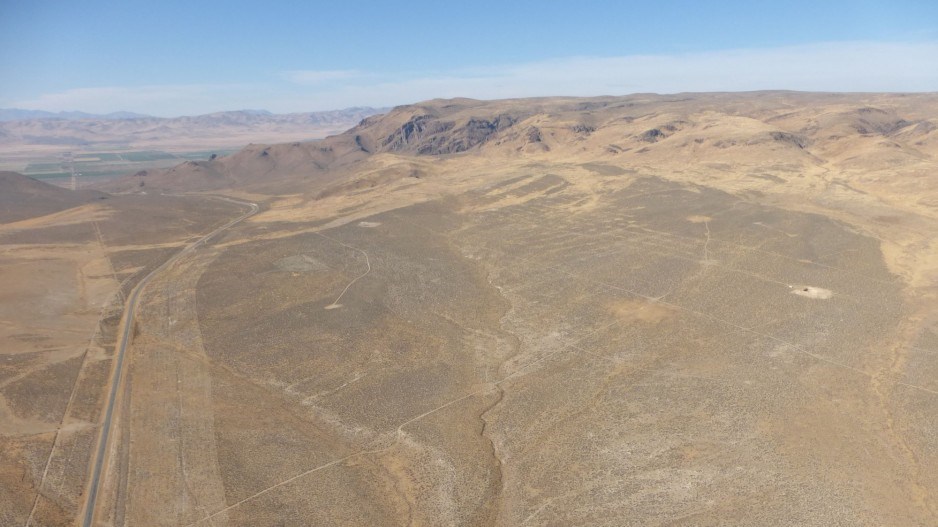British Columbia is never going to be a major lithium producer – it just doesn’t have the geology.
But a number of Vancouver companies are capitalizing on a “white gold” rush in South America as well as Nevada – a rush spurred by good geology, a mature mining jurisdiction, skyrocketing lithium prices, and American energy and domestic supply chain security policies.
One locally based company is poised to become a major producer – Lithium Americas (TSX, NYSE:LAC).
With a market cap of over $4 billion (as of 10:15 a.m. on Jan. 26) and two prized deposits – in Argentina and Nevada – Lithium Americas is among the top 10 largest pure-play lithium mining companies in the world by market cap, according to a number of rankings.
Meanwhile, another Vancouver company, American Lithium Corp. (TSX-V:LI), began trading on the Nasdaq earlier this month under the stock symbol AMLI. American Lithium has two development projects – one in Peru and one in Nevada – and a market cap of more than $999.25 million ((as of 10:15 a.m. on Jan. 26).
“Obviously we have a major project in the U.S.,” American Lithium CEO Simon Clarke told BIV. “A U.S. listing makes a lot of sense.”
Focusing on Nevada also makes a lot of sense. Nevada is rich in minerals, including lithium, and is a mature mining jurisdiction.
Lithium, which has been alternatively called “white gold” and the “new gasoline” is critical not only to lithium-ion batteries for electric vehicles and electronics. Lithium prices have soared, from US$6.75 per kilogram in January 2021 to US$57 per kilogram in February 2022.
Increasingly concerned about energy security, the U.S. has adopted policies to promote and subsidize certain industries, including the mining of critical minerals. Nevada is now being touted not just as a lithium mining hot spot, but a “soup-to-nuts” lithium hub.
“Nevada is a very good mining state,” Clarke said. “They understand mining intimately. And strategically, you’ve heard Tesla (Nasdaq:TSLA) and Panasonic and other parts of the lithium supply chain start to set up in Nevada as well.”
Of the Canadian companies with lithium projects in Nevada and-or South America, Lithium Americas is the most advanced. It is developing the Caucharí-Olaroz, a lithium-carbonate brine project in Argentina, and the Thacker Pass lithium mine in Nevada. The Caucharí-Olaroz project is being developed in partnership with Ganfeng Lithium (OTC:GNEN.F), China’s largest lithium producer.
With a capital cost of US$852, the new Argentinean mine is expected to produce 40,000 tonnes of battery-grade lithium-carbonate annually. Commissioning of the new mine is underway, and it is expected to be in production in the first quarter of this year. The project is now being spun out as a separate company – Lithium International.
Lithium Americas’ wholly owned Thacker Pass lithium project in northwest Nevada is also forecast to produce 40,000 tonnes annually in a first phase, and up to 80,000 tonnes annually after a second-phase expansion. The project is approved by the U.S. Bureau of Land Management (BLM) and is fully permitted.
A legal challenge launched by a handful of local conservation groups and some Native American tribe members aims to overturn the mine’s approval. A district court heard an appeal to overturn the BLM’s approval of the Thacker Pass project Jan. 6. A decision is expected in a couple of months.
The Thacker Pass mine’s capital cost is estimated at US$1 billion – with US$581 million for the first phase.
Mickey Fulp, investor, geologist and publisher of the Mercenary Geologist, is no fan of lithium and owns no lithium mining stock. But he concedes the Thacker Pass project has the right geology to become a significant lithium producer.
“Thacker Pass is the largest lithium deposit in the United States,” he said. “But it has some economic and technical challenges, in my opinion.”
One of those challenges is its geological nature – clay stone – which requires a novel metallurgical process for refining.
Fulp’s biggest skepticism with respect to lithium, however, is that at some point some chemical substitution may be developed that replaces lithium in batteries.
“They’ve run a 46-year mine life,” Fulp said of the Thacker Pass project. “The economics look good. But you can’t project 46 years. You don’t even know if lithium is going to be a viable battery or something else is going to happen in five or 10 years.”
This article was first published in BIV's print edition. For first access to print business news, become a BIV subscriber.



